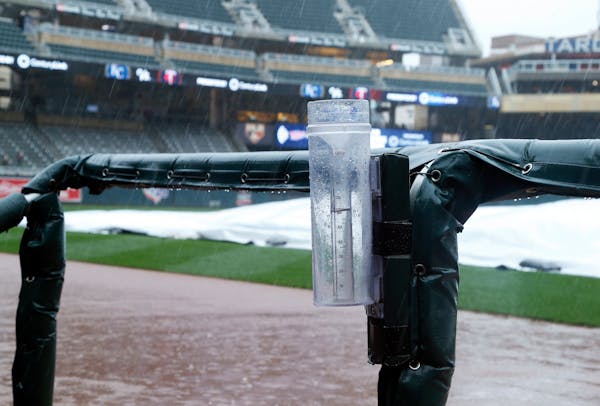Jason Castro remembers what pregame meetings were like when he entered professional baseball nearly a decade ago: That guy is a good fastball hitter. This guy likes to swing at the first pitch. Their cleanup hitter grounded out on a changeup last night, so maybe try that again.
"Lots of generalities back then," the Twins catcher said. "And you never shifted your defense, except for maybe one guy per team. It's nothing like what we have today."
Yes, scouting meetings are so intricately detailed now, they're practically entertainment, at least to a baseball junkie like Paul Molitor.
"It's kind of fun to sit in on some of those meetings, when starters go through their pregame preparation," the Twins manager said. "Just hearing the depth of the plan and how best to execute it, depending on what [a pitcher has] working on that given night."
The changes that baseball's embrace and development of statistics has triggered on the field are most obvious in the extreme defensive shifts that most teams now routinely undertake. But the search for advantages from information is just as pronounced on the mound, Castro said. It's just less obvious to the naked eye.
"We're getting a lot of practical information at our level, stuff we can use directly on the field," said Castro, a Stanford graduate. "Now we know not only what pitches to use in certain situations and the tendencies of hitters, but what locations to use, what to change in certain counts, where our safe spots are, what hitters do with runners on, what they're looking for in late-inning situations. It's not so much a bunch of numbers — [the Twins front office] uses some quantitative stuff to filter things down, and we get actionable information."
New Twins Chief Baseball Officer Derek Falvey specialized in working with Cleveland's pitching staff when he was assistant general manager for the Indians, and that focus is obvious with his new team, too, players say. The addition of advance scout Jeremy Hefner, himself a former major league pitcher, reflects the team's intention of playing and pitching smarter.
"They have a lot of information, and good ideas about helping us use it to our advantage," said Twins starter Ervin Santana. "They listen to us, too, and they don't just overwhelm you with numbers."
That part is important, Castro said. Veteran pitchers such as Santana and Matt Belisle have faced a lot of the same hitters many times, "so their personal history is important, too. 'I pitch to this guy this way, here's what worked,' " Castro said. "We work that in to what we're doing."
The Twins pitching staff has been receptive to the input from the start, Castro said, but especially now that they feel they are seeing results. The staff, worst in the American League a year ago, has improved by more than a run per game so far this year.
"The staff has seen pretty quickly this season how useful that information can be when we stick to it and trust it. It's way more helpful than not," said Castro, signed as a free agent from Houston over the offseason. "Derek and Thad [Levine, the general manager] have done a really nice job of coming in and implementing the stuff they want to see us doing."
The biggest problem, Castro said? His memory.
"It's definitely made for a more challenging game at times. The information is there, and at any time we know pretty accurately what the hitter's weakness is in certain situations," Castro said. He has seen some players wear wristbands like football quarterbacks, with information printed on them to keep it all straight. He hasn't resorted to that, but he will occasionally refresh his memory between innings.
"If they have pinch hitters possibly coming up, we have things in the dugout I can refer to so I don't have to keep it all in my head," the 29-year-old said. "But it's gone really well so far."
His manager emphatically agrees. "I give both him and Chris [Gimenez, the backup catcher] a lot of credit. They see the value in today's game of using what information is available and try to apply it on the mound," Molitor said. "Whether it's [working with] your starter or guys you bring into the game, both of these guys have dived into it."
